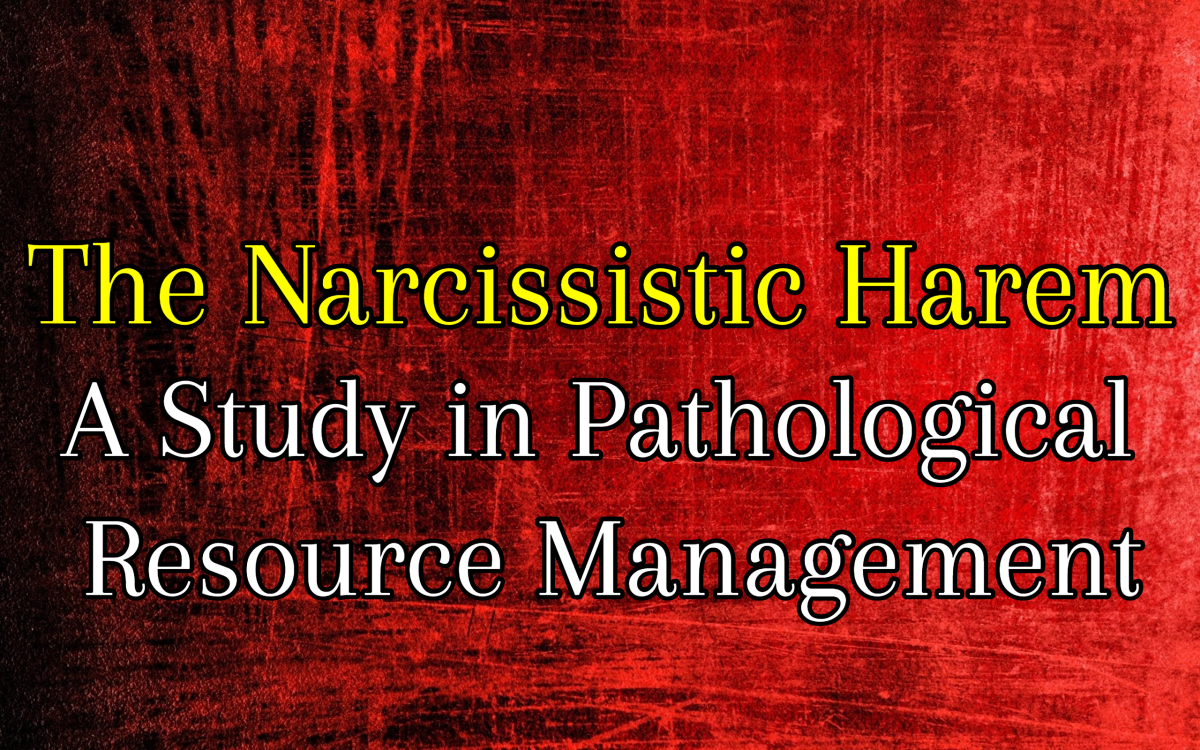When A Loved One Is Mentally Ill: Support For Mental Illness

Someone I Love Is Mentally Ill ... What Can I Do?
A loved one has just disclosed a mental illness to you. Maybe it's depression; maybe it's bipolar disorder. You want to be supportive ... but how? What do you say to someone who's just told you they're mentally ill?
Disclosure of mental illness is not exactly something covered by Emily Post. There are still a lot of taboos surrounding the subject, and you may not even know what it means to be mentally ill, much less how to handle the situation when it arises in the life of a loved one.
As someone with a mental illness, I have first hand knowledge of what a mentally ill person needs, and does NOT need, to hear from her friends and family when she's going through a crisis. I also have many good friends who are mentally ill as well, and I've learned a great deal about how to support them -- while still taking care of myself.
Below is a list of "Do's" and "Don'ts" when someone you love is mentally ill. Reading it will enable you to be a better friend when they really need one.
When Someone You Love Is Mentally Ill - Learn as much as you can about their condition.
It's natural to feel nervous or uncomfortable if a loved one is diagnosed with a mental illness. There is a lot of taboo and silence surrounding mental illness. It's not widely understood outside of medical circles, and you may be confused about what "mental illness" means.
For this reason, one of the best things you can do for your loved one is to educate yourself about mental illness. Not only will you understand what they're going through, but by learning about your loved one's condition, you will help to demystify it. Their mental illness will become much less scary the more you understand it. Better yet, you will be in a position to educate others as well.

In spite of my writing about mental illness, most people do not know that I have it. I write under an assumed name. I do not disclose it to coworkers or acquaintances.
However, all of my friends know about my mental illness, and it's a topic I feel comfortable discussing with any of them. Why?
Because I choose my friends very, very carefully. I pay attention to what people say and how they respond to what other people say. If I overhear someone in the break room at work complaining that "too many people are popping Prozac instead of dealing with their problems", that person will never be my friend. The person who agrees with that person will never be my friend. The person who says "Hey, that's an unfair statement" has earned my respect.
Just like a diabetic must take insulin to make up for a lack of it in her body, I need to take certain medications to make up for a lack of certain chemicals in my brain. You will make life easier on me, and on every other person suffering from mental illness, if you refrain from judging me for this.

On the one hand, I love my medication. It enables me to function like an adult human being. Without it, I can't remember to start dinner or do laundry -- and even if I could I'd be too depressed to get out of bed. Literally.
On the other hand, I hate the fact that I have to take medication. Sometimes I internalize society's judgments, and I get down on myself for needing it. Other times I worry that, if medication can imbue me with this functionality, it can take it away again -- what if it stops working for some reason?
Be aware that your loved one may have a very complicated relationship with their meds. If you're willing to hold space for them to vent, you'll be providing them with invaluable support.

I live in San Francisco, and that means that every time I turn around someone is offering me a raw zucchini smoothie with extra spirulina so I can "cleanse" myself. Or something. People in NorCal have an annoying tendency to attribute everything to an unwholesome diet (like not eating enough soy) or reaction to "toxic" food (like soy).
Mental illness is a complicated issue. It arises from a variety of contributing genetic and environmental factors. It is NOT a "food allergy" and it will not be fixed by eliminating red meat, dairy, or wheat. I know this because I'm a gluten-free vegetarian who eats almost no refined sugar. Telling me that all my problems will go away if I just "fix my diet" minimizes my mental illness, and also ignores everything I already do to stay healthy. It's also rather rude and invasive.

While mental illness is not about what you eat, what you eat does matter.
It's been demonstrated that a healthy, balanced, whole foods diet along with 15 minutes of exercise a day can go a long way in improving someone's mood. For some people, this can even replace medication. For people like me, it just helps the meds work better.
If your loved one decides to augment their treatment by eliminating alcohol, don't ask them out for a beer. If they're trying to minimize their sugar intake, don't bring them cookies. Instead, ask them to go for a walk with you, or swim laps, or play tennis.

When someone discloses a mental illness, it's natural to be concerned for that person. You want the people you love to be healthy and happy. You may worry that your loved one is at risk of harming themselves. You may have tons of questions about medication, therapy, and what your friend is going through.
As hard as it may be, it's important to let your loved one set the pace for your conversations. They may want to talk about their illness, or they may not. They may want to talk about their therapy sessions, or they may not. When someone is mentally ill, it can be hard for them to build up a feeling of safety and security. Having someone probing their boundaries can be damaging -- at best, it will make them reluctant to confide in you.

DO Make It Clear You're There To Listen - It's the single best thing you can do.
The single best thing you can do to support a loved one with mental illness is to tell them that you're there, willing to listen, if they want to talk about it.
Let's face it, mental illness is a heavy subject. A lot of people are afraid of it, and don't know how to discuss it with a loved one who may be suffering. It can bring up all sorts of issues, both in the sufferer and in the friend.
Personally, when I'm going through a crisis, I only talk to those friends who have explicitly said they're able to hold space for me. I don't want to cause suffering to my friends and family, so I don't want to lay anything too heavy on someone who lacks the capacity to handle it. Your loved one may feel the same way -- so if you want to be there for them, tell them so.

If you're supporting a friend through a mental illness, do not gossip about what they say to you regarding that illness. They may have had a hard enough time disclosing their illness to you; breaking their trust at this time could be incredibly damaging. Assume that confidentiality is required unless your loved one explicitly states otherwise.
The ONLY exception to this is if you yourself need support in coping with your friend's illness. Your loved one's ordeal is an ordeal for you as well, and you have an absolute right to get the support you need.

You may wish to discuss your loved one's mental illness with other family members or friends. Or you may need support yourself after being so supportive to your loved one.
In any case, it's good to be explicit about the confidentiality that your loved one requires. They may be OK with you discussing their issues with certain other people. They may not want you to use their name if you talk about their mental illness. Or they may not want you to discuss their situation at all.
If you need to talk about your loved one in order to get the support you need, use absolute discretion in doing so. Discuss the situation with your therapist, spouse, or someone you know will be understanding -- and who will keep your loved one's confidentiality, and yours.
DON'T Make Assumptions About What Your Friend Needs - It's just annoying.
I had a college friend who, whenever I would confide a problem to her, would respond by saying, "Well! Here's what you need to do ...".
Needless to say, I eventually learned not to confide in her.
I did not confide in my friend because I wanted or needed her to tell me what to do. In fact, I resented it like hell. I felt patronized and invisible. I felt like my friend thought of me as a hapless child who couldn't handle her own problems. The real reason I had confided in my friend was that I wanted her to listen -- pure and simple. That's it.

DO Ask Your Friend What They Need From You - Clear communication is always best.
Sometimes, it may not be clear what your loved one wants or needs. They may not know themselves whether they're asking for advice, your opinion, or just a sympathetic ear.
If you find yourself getting overwhelmed or confused about what your friend is asking from you in the way of support, it's OK to ask, "What do you need from me right now?". It will help you and your friend clarify what the conversation is about.
I find this is also a good tactic when the conversation is going to a bad place. For instance, I recently had a conversation where a friend expressed his disappointment with his life and his concerns for the future. I tried pointing out to him that he's handled his adversity really well -- in fact, he's started his own business that's growing every month -- and this, in the worst economy since the Great Depression.
But he had a negative answer for everything I tried to say to be supportive, and felt convinced that his life was going nowhere.
So I asked, "What do you need from me right now?". It caused him to stop and think, and he realized that he was stuck in a negative spiral that was doing him no favors.

At times, you may find that you're not able to support your loved one in the ways that they want (or think they want). Support requires clear communication, and communication requires self-awareness -- if your loved one has just been diagnosed with their mental illness, or if their illness is exacerbated by other issues they haven't dealt with, your friend may not be able to tell you what they need.
I once tried to offer support to a friend who lacked self-awareness, and I wound up in over my head. She had recently developed a health problem that, while no means fatal, still required a serious lifestyle change. She was very anxious about it -- in fact, her anxiety made her health problem worse, and she knew it. She felt like she was incapable of changing her situation. Worse still, she felt like she "needed" her anxiety in order to function.
Every time I tried to point out that her condition was very manageable, she would come up with a reason why she couldn't manage it. I sppn began to feel stuck. My choices were to contradict her statements that she couldn't change her lifestyle, or to agree with her, even though I didn't think what she said was true. When I asked her what she needed from me, she claimed that all she wanted was for me to "listen".
After several phone conversations along these lines, I found my own anxiety getting worse and worse. I came to dread talking with my friend. Eventually I realized that she only thought she wanted me to listen -- but what she really wanted was for me to enable her belief that she couldn't take responsibility for her health. Whenever we talked, she put me in a conversational position where I had to agree with her, or, by disagreeing, enable her to come up with ever more elaborate reasons why she couldn't change.
I realized that I lacked the skills to support my friend. What she really needed was a therapist -- somebody with the training and ability to help her see the trap she had set for herself. I had to tell my friend that, for the sake of my own health, I was unable to support her in this situation.
DO Take Care Of Yourself - It's what's best for everyone.
If someone you love is mentally ill, it's important to remember that what they're going through affects you as well. It takes a lot of energy and resources to support someone who is suffering a mental illness. Even if all you're doing is listening, it takes a lot of energy that you will need to replenish.
You may also need to deal with feelings of worry or sadness about your loved one's condition. Don't be afraid to reach out for help yourself -- whether it's from a trained therapist, a spiritual advisor, or a trusted friend.
Finally, be sure to care for yourself as well as your loved one. Remember to take time for yourself, to do things you enjoy. You will be better able to support your loved one, and you will have a better life for yourself.

DO Educate Yourself About Mental Illness - I've said it before, but it bears repeating!
How much you want to educate yourself about mental illness depends on your relationship with your loved one. If a member of your community has disclosed their mental illness, you may be content to do cursory internet research. If the person with a mental illness is a close friend, partner, or child, you may want to read everything you can about their condition.
The important thing is that you understand that mental illness is not the fault of the person who's ill. It's not your fault either. It's not something anybody can really control, but it is something that can be treated and managed. There are people with a wide variety of mental illnesses, ranging from depression to bipolar disorder to schizophrenia, who live normal, productive lives -- and nobody even knows we're mentally ill, unless we tell them.

The Three Keys To Supporting A Loved One With Mental Illness
If you're feeling overwhelmed by all this information, that's OK. There are only three things you really need to remember as you support your mentally ill loved one:
1. REFRAIN FROM JUDGMENT. Your loved needs to feel accepted and understood right now.
2. LISTEN. Your loved one needs to have space to talk about their illness.
3. TAKE CARE OF YOURSELF FIRST. Take a step back and do something for yourself from time to time. It will be better for you AND your loved one.
Best of luck!










